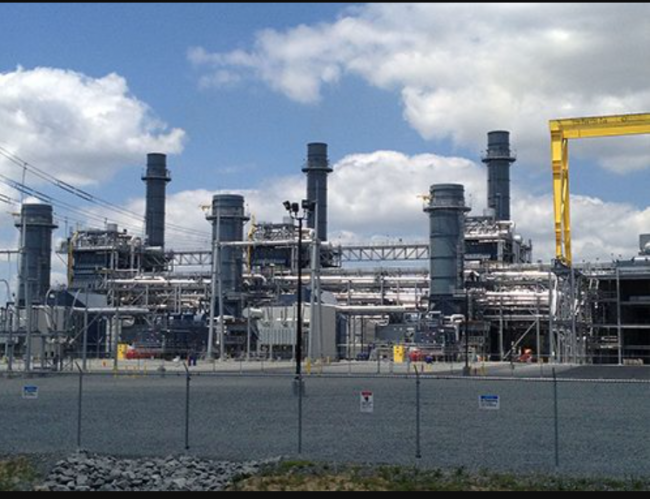Articles Menu

July 18, 2023
Natural gas can carry as severe a climate impact as coal, a new study from the United States warned late last week, just as an Ontario power producer proposed a new gas-fired generating station in the Niagara Region city of Thorold.
Even if a natural gas system leaks as little as 0.2% of the product into the atmosphere, “it’s as bad as coal,” Brown University environmental policy expert Deborah Gordon, lead author of the new study in the journal Environmental Research Letters, told the New York Times. Despite years of industry spin promoting gas as a “bridge” to a renewable energy future, “it can’t be considered a good bridge, or substitute,” Gordon added.
The 0.2% leakage rate “is a tiny margin of error for a gas that is notorious for leaking from drill sites, processing plants, and the pipes that transport it into power stations or homes and kitchens,” the Times writes. Gordon’s peer-reviewed study “adds to a substantial body of research that has poked holes in the idea that natural gas is a suitable transitional fuel to a future powered entirely by renewables, like solar and wind.”
Natural gas, often rebranded by climate hawks as fossil gas, “is made up mostly of methane, which is a far more potent planet-warming gas, in the short term, than carbon dioxide when it escapes unburned into the atmosphere,” the Times explains. “And there’s mounting evidence that methane is doing just that: leaking from gas systems in far larger quantities than previously thought. Sensors and infrared cameras are helping to visualize substantial leaks of methane from oil and gas infrastructure, and increasingly powerful satellites are detecting ‘super-emitting’ episodes from space.”
The growing body of research poses “difficult questions about how much more money the nations of the world should invest in gas infrastructure to ward off the worst of global warming,” writes Times climate specialist Hiroko Tabuchi. But apparently not in Ontario, where Toronto-based Northland Power has just proposed a new 198-megawatt gas peaker plant, “promising more carbon-emitting electricity at a time when the federal government and the UN have repeatedly emphasized the importance of decarbonizing the grid,” the Toronto Star reports.
The plant “will act as a backup resource to support and stabilize the regional energy grid, producing little energy and emissions,” Northland said. But that’s not the way Ontario is planning to use its gas-fired capacity.
“The province’s fleet of gas peaker plants currently operates just under six hours a day, on average,” the Star explains, citing the province’s Independent Electricity System Operator (IESO). “But they are slated to rapidly increase their runtime to more than 19 hours a day in 2026, as they ramp up to compensate for nuclear plants going offline for refurbishment.”
In addition to the three new gas plants—in Thorold and Windsor, and outside Sarnia—IESO is also planning to add 1,500 MW of new capacity by expanding four existing gas plants. In its May 16 media release on the gas plant expansion, the IESO simultaneously announced and put most of the emphasis on seven new storage battery projects it plans to support, totalling 739 megawatts—Canada’s biggest storage project ever. But last week, The Energy Mix revealed that those batteries will likely be charged with electricity produced from the gas plants.
“Opposition to the gas plants has been growing, with 34 municipalities across Ontario passing resolutions calling for a complete phaseout of the technology,” the Star writes. “In Toronto, city council has voted three times to oppose the expansion of the Portlands gas plant, which is not only the city’s number one source of carbon emissions, but also produces toxic air pollutants, like nitrogen dioxide, in one of the densest urban centres in the country.”
“I feel for those residents because these gas plants aren’t just producing greenhouse gases but also toxic pollutants which particularly affect people’s health—especially those with asthma,” Ontario Green Party leader Mike Schreiner told the Star.
[Top photo: gas fired power plant Peoplepoweredbyenergy/Wikimedia Commons]